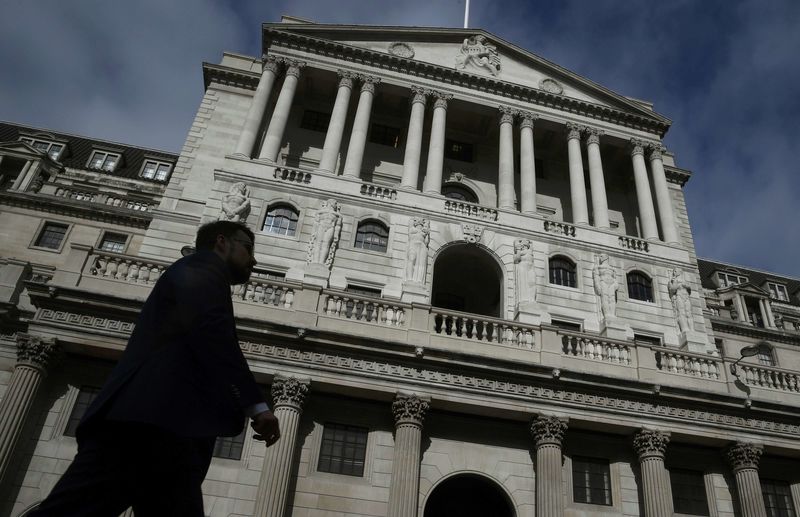LONDON, (Reuters) - The Bank of England said on Monday it would hold a broader stress test of British banks' resilience alongside its regular annual check-up of their financial health.
The central bank will release the results of this year's stress test at 0700 GMT on Nov. 30, alongside its half-yearly Financial Stability Report, and will go ahead with plans set out in 2015 to conduct a broader test as well in 2017.
"Next year the Bank of England's stress test of major banks will for the first time include two scenarios. In addition to the Annual Cyclical Scenario ... there will be an additional 'exploratory' scenario," the BoE said.
"This will allow banks' resilience to a wider range of potential threats to be assessed," the BoE added.
The annual stress test typically focuses on potential near-term threats to banks. This year's test looks at the dangers from a "severe slowdown" in the British and global economy.
The lenders undergoing the stress tests in 2017 will be the same as those under scrutiny on Nov. 30 - Barclays (LON:BARC), HSBC, Lloyds Banking Group (LON:LLOY), Nationwide Building Society, Royal Bank of Scotland (LON:RBS), Santander (MC:SAN) UK and Standard Chartered (LON:STAN).
The central bank also released a record of its Financial Policy Committee's latest quarterly discussions which took place on Sept. 20.
After the Sept. 20 meeting, the BoE had said Britain still faced a "challenging period" for financial stability despite resilience seen after the European Union referendum, and said there was no case to relax regulation on banks.
"Heightened uncertainty about the near-term macroeconomic outlook and the United Kingdom's future relationship with the EU was reinforcing domestic risks," the record said on Monday.
Last month the FPC said that "irrespective of the particular form of the United Kingdom's future relationship with the EU", Britain's financial system needed "robust prudential standards".
With UK-regulated banks' future access to EU markets unclear, Britain's government is under pressure from the industry to make London a more attractive location.
The Confederation of British Industry has already called for banks to be removed from the "naughty step", after a prolonged regulatory crackdown following the financial crisis.
After September's meeting the FPC made no new regulatory recommendations, and stood by its decision in July to reverse a move earlier in the year that could have increased banks' capital requirements.
The record showed on Monday that the decision to stick with July's decision had been unanimous.
The increase in banks' counter-cyclical capital buffer which the FPC recommended in March was linked to an expected upturn in lending, but the central bank now expects economic growth to slow over the coming year.
